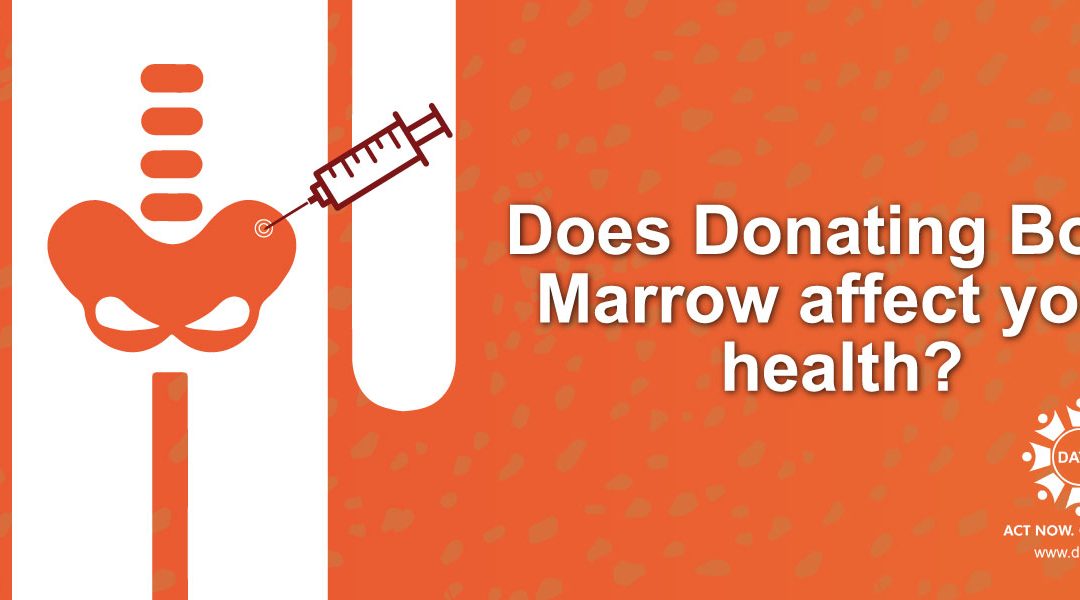Donating bone marrow is one of the most generous acts you can do to help someone battling blood cancers like leukemia, lymphoma, and other blood disorders. While the idea of donating such an essential part of your body might raise some concerns, it’s important to understand the process and its potential effects on your health.
In this blog post, we’ll explore how bone marrow donation affects your health and clear up common misconceptions about the procedure.
What is Bone Marrow Donation?
Bone marrow is the soft tissue found inside your bones, particularly in the hip and thigh bones. It plays a vital role in producing blood cells, including red blood cells, white blood cells, and platelets. When someone is diagnosed with a blood disorder, a healthy donor’s marrow can replace the diseased marrow, offering a life-saving solution.
The process of donating bone marrow is safe and doesn’t negatively affect the donor’s long-term health. While there are short-term effects, they are typically manageable and resolve quickly.
How Donating Bone Marrow Affects Your Health?
1. Short-Term Effects
The short-term effects of donating bone marrow vary from person to person. This procedure requires a hospital visit and is performed under general anesthesia, so the recovery typically takes a bit longer. Donors may experience soreness or tenderness at the site where marrow was taken (usually the hip area). This discomfort generally lasts for a few days to a week. Some donors may also experience fatigue, nausea, or lightheadedness, but these symptoms tend to subside relatively quickly.
2. Long-Term Effects
In most cases, donating bone marrow does not result in any long-term health problems. Bone marrow regenerates naturally, and the body’s ability to produce blood cells typically returns to normal within a few weeks to months. While the process removes a small amount of marrow, the body compensates by producing new marrow. There have been no significant long-term health consequences for donors, and most report a full recovery without lasting effects. However, as with any medical procedure, there are potential risks, but these are very rare.
3. Donor Eligibility and Health Considerations
Before undergoing the procedure, potential donors go through a comprehensive medical screening to ensure they are healthy and fit for donation. This helps to minimize any risks to your health. Certain medical conditions, like chronic illnesses or infections, may disqualify someone from donating.
What to Expect After the Donation?
After donating, you’ll be monitored for any immediate effects. Most donors experience mild fatigue or tenderness at the extraction site, but these symptoms are generally short-lived.
Recovery time: Recovery varies from person to person. While some return to their normal activities within a week, others may need more time to rest.
Rest and care: It’s important to avoid strenuous activities during the recovery period and follow any post-donation instructions from your healthcare team.
The emotional aspect of donating is also significant. Many donors feel a deep sense of fulfillment knowing that their gift could save a life. It’s common to feel a range of emotions, especially for first-time donors, so having a support system can make a big difference.
Final Thoughts: Does Donating Bone Marrow Affect Your Health?
In conclusion, donating bone marrow is a safe procedure for healthy individuals, with minimal risk of long-term health effects. While the short-term effects like mild soreness or fatigue are common, they are typically temporary and manageable. Your bone marrow regenerates naturally, and most donors experience a full recovery within a few weeks.
If you’re considering becoming a donor, consult with your doctor to ensure you’re a good fit. The risks are low, and the impact on the recipient’s life is priceless. By donating, you can offer someone a second chance at life—a gift that makes all the difference.

